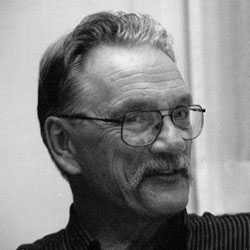I’m going to write a poem about life & death, I said, but mostly about death. But you are always doing that, said D, your last poem was about death. The poem before that one was about death. In fact if you looked at all your writing, especially the poems, you would find pretty near nothing but death. A lot of the time you seem to be laughing about it, but that doesnt fool anyone.
Yes, but this time I am going to make it a real poem about life but mainly death, I’ll grant you that. None of that lacy Rilke death, none of that ho ho Vonnegut death. I mean real death or I should say real thinking about death. For instance? asked D. Well, for instance, take the way you feel like how awful it would be when you cant put an arm around a perfect waist, & there is that swelling out of hip upon which it is natural to rest an arm. How wonderful, and how terrible not to be able to look forward to that ever again.
You see? said D, you announce that you are going to say something straight about death, and there you are talking about life, as far as I can see. That’s just my point, I said. Death will be horrible because it won’t have anything of life in it, no matter how many fancypants graduate students have told me that you can’t really submerge yourself in life unless you are fully conscious of your death. They have all been reading Albert Camus lately, & they are so much wiser than I am.
I suppose you are using all of the things I have been saying as part of your poem, said D. Of course, I said. You are to this poem as a swelling out of lovely hip is to an arm that has snaked around a dear waist.
Just then I realized that I had made D up in my imagination, & now there was no D at all, & I had to forget about writing another poem about life & death, but especially about death, especially about death from a straight point of view, because M came into the room while I was typing & had a persistent gripe about C, & no matter how interrupted I managed to make myself look on the chair in front of the keyboard, M just kept on & on till the poem had followed D to some place we will never find the way to.
Notes on the Poem
One of the most amiable and life-affirming poems we think you're likely to encounter ... is this poem entitled "Death" by George Bowering, from his 2005 Griffin Poetry Prize shortlisted collection "Changing on the Fly." Life persistently intrudes on the poet's thoughts about how to assemble a telling poem about death. The poet's thoughts include tussling with other writers who have assayed the subject, such as Rilke and Vonnegut. The poet also tussles verbally and with obvious affection with D, who appears to be a very welcome intrusion. The form and content of the poet's ruminations are casual - salted lightly with the likes of adjectives like "fancypants" - distracted, and even look rather rambling in their loosely paragraphed layout. That the most compelling distractions are presented as real at first, and then revealed to be imaginary, perhaps only endears us that much more to the poet (both the narrator and Bowering himself), whose bewilderment at scholarly contentions about life and death has already charmed us. Bowering revealed in a 2005 review of "Changing on the Fly" that this poem had a bit of a quirky publishing history. It sounds like it wasn't so much the poem as its title, and Bowering's insistence that the title be part of the collection's title. Why do you think publishers resisted when, ironically, "Death" was associated with such whimsical contemplations?
